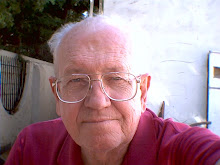The Role of Theory
A staple of epistemology is THEORY. As a matter of fact, every move we make in moving from the present into our immediate future is based on a theory. When we tie our shoes in the morning, we do it based on a vision, a theory, of the type of knot we wish to make. Do we make the classic two loops with the attendant two loose ends, either which can be used to undo the knot? Or for security reasons use a square knot? The square knot is troublesome to undo, but it unlikely to become untied. A soldier headed out on patrol is likely to select a square knot. The vision,i.e., theory, he uses when getting ready for patrol is wholly different from the vision he uses when he dons his dress uniform for marching in the Sunday parade.
We move from the present to the future by the use of theories. If my car has had difficulty starting in the morning, I may think: If it starts, I’ll drive to the service station. If it doesn’t, I’ll call the “triple A.” I set my alternative courses of action as a pair of propositions (theories) that will result in different futures.
To determine whether a theory is true or false, it must be tested. The test for starting the auto is to turn the ignition key.
Currently, the popular theory in Washington, and in the lap-dog media, is that “Capitalism is a failure.” Another popular theory is that anyone who opposes Obama is a racist. Another popular theory is that Republicans and Democrats are all the same, because they are politicians. “Not a dime’s worth of difference.” These theories are all false, of course, and are purposely disseminated to confuse the common citizen.
A key feature of epistemology, one that puts great perspective on all human activities, is the fact that all knowledge is based on trial and error. This is true for all mankind; for all time. To learn more about Knowledge go to http://knowledge-and-understanding.blogspot.com.

No comments:
Post a Comment